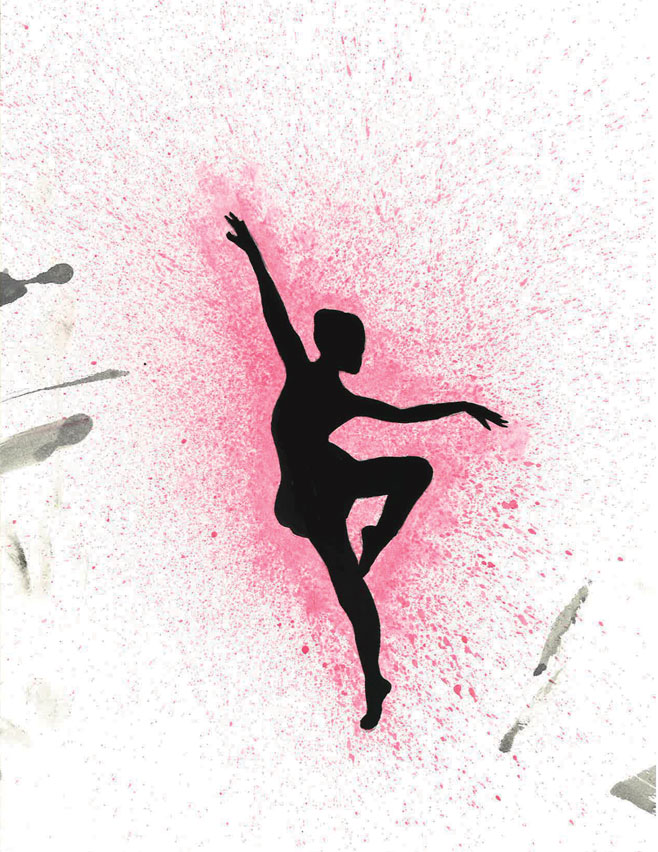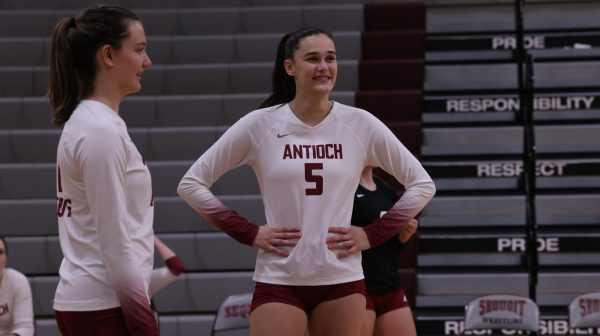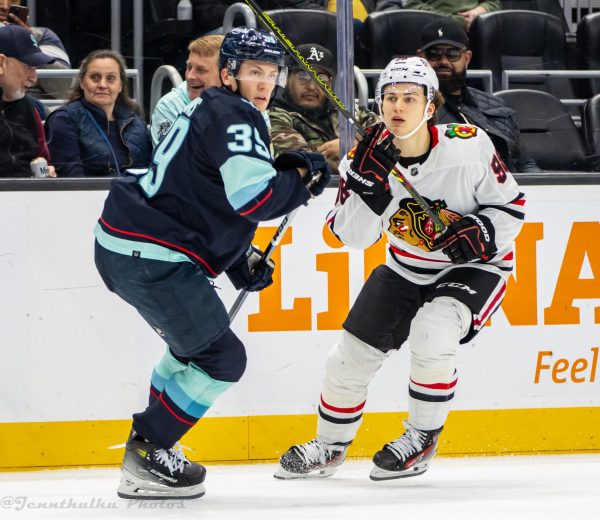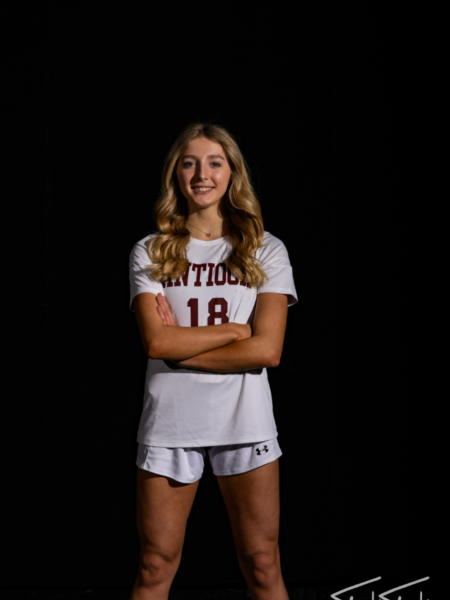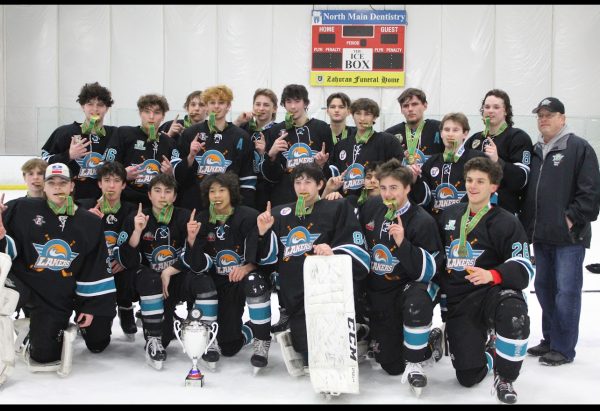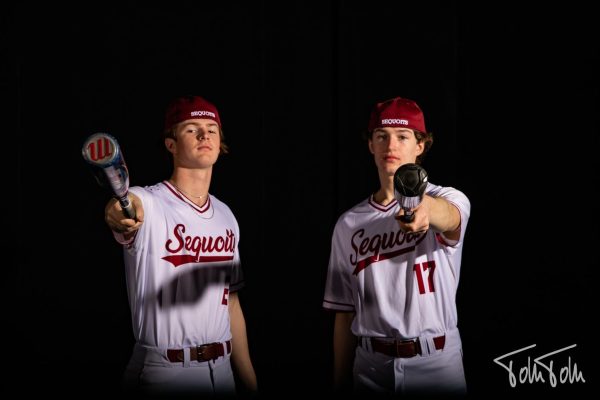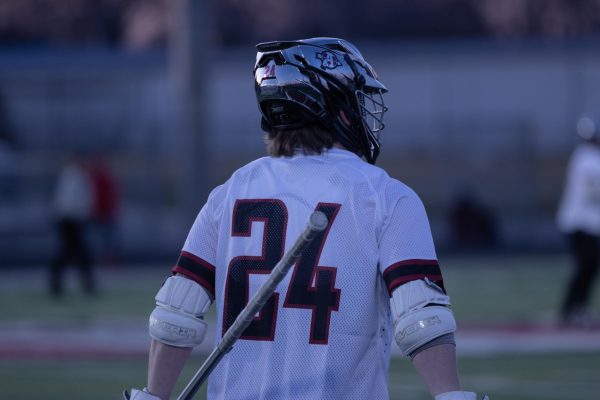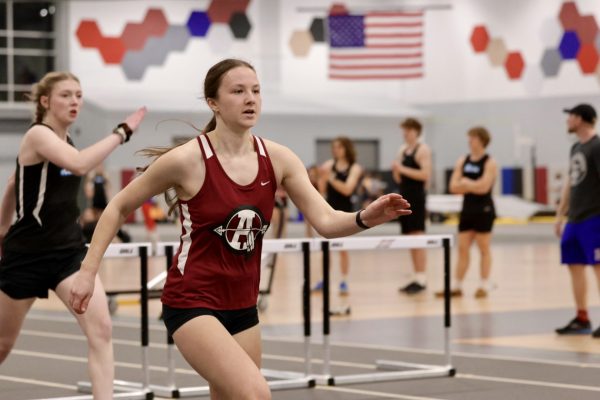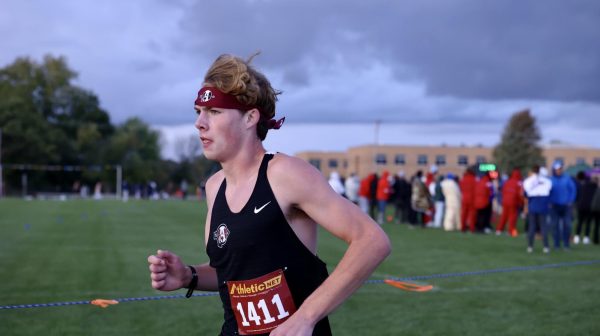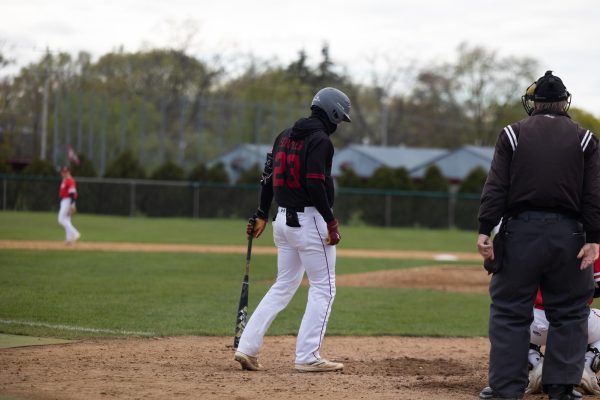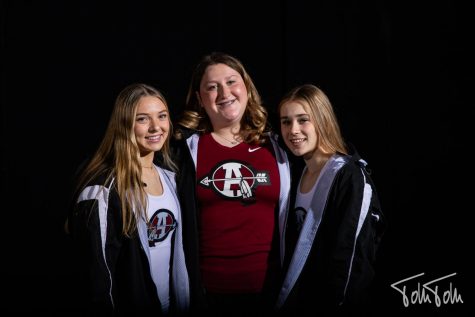Passion.
Some athletes are couragus enough to go against the stream an join a sport for the “opposite gender.”
Being passionate is different for everyone—some people view female athletes involved in traditionally male sports, according to the Illinois High School Association, or males involved female sports, according to the IHSA, as extremely courageous for their undying passion to participate in a sport they love, despite being out of the ordinary; these athletes are putting themselves in the open for ridicule and judgment, but they’re also putting themselves in the best position for success. According to sophomore Paul Valdivia-Valencia and freshmen Sharon McAllister and Alex Chadzynski, they are not courageous, they are just doing what they love.
“I do not believe that I am courageous because I am a girl that plays football,” McAllister said. “If people really want to play football because they enjoy it, no matter their gender, I feel that they should play it.”
McAllister was introduced to football at an early age and was eager to play. She started playing as an 8th grader for the Antioch Vikings football program and loved it. Being the only girl on the teams she played for made her very nervous and she felt as if she needed to be accepted by her teammates.
“My teammates don’t treat me any differently than they would to the others on my team,” McAllister said. “My classmates don’t treat me differently either; they might be like, ‘that’s so cool you play football!’ But other than that, they don’t treat me differently than anyone else.”
Valdivia-Valencia is a sophomore on the junior varsity cheerleading team. After watching his sisters practices and doing tumbling at a young age, Valdivia-Valencia started to find interest in cheerleading in 4th grade. He decided this year to try out for the competition cheer team; he was supported by all of his friends and his family encouraged him to join the team.
“It’s different because not many guys do cheerleading and there are only two of us so it’s really different and fun,” Valdivia-Valencia said. “I’m setting an example that it’s not just a girls sport and that any gender can do it if they chose to.”
Unlike Valdivia-Valencia, Chadzynski was also on the varsity cheer team during football season and is now on the junior varsity competition team.
“Honestly, I enjoy the sport a lot and other people’s opinions don’t matter much to me,” Chadzynski said. “I have friends that joke around with it, but I feel proud that I’m in a sport that requires [me] to be in really good physical shape.”
Although being involved in these sports as the “opposite” gender is courageous, it more so shows character and the passion each athlete has for his/her respective sport. For all athletes, doing extra work on the side is an important key to success; some athletes have to work even harder to have the same skills as their teammates. Due to the fact that cheerleading is stereotypically seen as a female sport, males participating may have to do extra workouts and flexibility activities to keep up with the team; the same goes for a female playing in a male-dominated sport and her needing to participate in other activities that may increase her success in areas male athletes may have more natural abilities in, such as physical strength and conditioning.
“We all stunt and tumble, but because I’m a boy I have different expectations like being really strong,” Valdivia-Valencia said.
For the cheerleaders, Chadzynski and Valdivia-Valencia are expected to be strong and be able to lift a girl easily. Valdivia-Valencia does weightlifting and private tumbling lessons. On the other hand, for football, McAllister isn’t expected to do anything different from the rest of her teammates. Although McAllister doesn’t have different expectations, she still chooses to do extra work during her free time to be ready for whatever comes her way.
“I don’t feel like I have to do many things on the side to keep up with them,” McAllister said. “The only things that I might have to do is weightlift more often so I can be as strong as them or work on speed and agility.”
Behind each of these athletes there are countless hours spent on training and working to be successful. From support of their friends, family and coaches they were courageous enough to join their sports. On the other hand, many of these athletes experienced moments where others around them were judgmental or disapproved of their involvement in the sporting program.
“A couple years back I was telling a friend of mine about wanting to do cheerleading, and right away he snapped back by saying it’s only a girls sport and it made me feel less confident, so I lost interest,” Valdivia-Valencia said. “Then, when I started high school, I decided to join anyway because these years are the years you truly find out who you are as a person and I wanted to show that I am a very outgoing, energetic person and what better way to show it [than] the cheer team.”
No matter what others say, these athletes continue to strive and not worry about others opinions. Being the only female or male (or two in the case of the cheerleading squad) in a sports program can be quite challenging, but Valdivia-Valencia, McAllister and Chadzynski all continue to thrive.
“I love football because of the games, I like the rush and excitement especially right before a game,” McAllister said. “But I just really enjoy playing and being on the field with my team.”
Although some people may think being involved in a male or female sport is inappropriate it’s because they don’t truly understand the passion behind each athlete. For most athletes being involved in a sport defines them, but to these athletes it is so much more. Joining a sport that many people would never try as the “opposite” gender and going against the stream takes a tremendous amount of courage and passion from each athlete.
“Joining a new sport is hard for everyone, but I’m doing this for me and not anyone else, Valdivia-Valencia said. “I’m involved in cheerleading because it makes me happy.”
Sports have changed these athletes lives in so many ways, including mentally; having a team who always has their backs has helped them all get close to one another. By doing stunts and having to trust others in cheerleading, Valdivia-Valencia and Chadzynski had to learn to trust their team quickly. For McAllister, teamwork and overall support from her teammates helped her.
“Football has made me a more social person, but also a better person in general,” McAllister said. “Football causes you to make bonds with you team and coaches and also requires some sort of leadership from each person, which is why I think football has made me a better person.”
To these athletes, the feeling of stepping on to the field or floor before a game or competition is the best feeling in the world. The thrill of performing or playing with the crowd cheering makes their hearts beat even faster. Contributing to something so great and meaningful makes each athlete love what they’re doing more than ever. For the school, community and, most importantly, themselves, they work hard.
“If I didn’t love football, I swear I wouldn’t have worked hard at all, during or post season,” McAllister said. “Almost every day during summer that I had practice I would go to the gym before or after. Trying to become stronger and faster so I can be better in the sport. If I didn’t have passion for football I wouldn’t have even signed up.”
Passion is a noun with three definitions: uncontrollable emotion, adoration and strong enthusiasm. Others may view passion as devotion, desire and obsession. Everyone can be passionate about something and other people may be more passionate than others. But the Sequoit definition for passion would certainly include Valdivia-Valencia, Chadzynski and McAllister.


